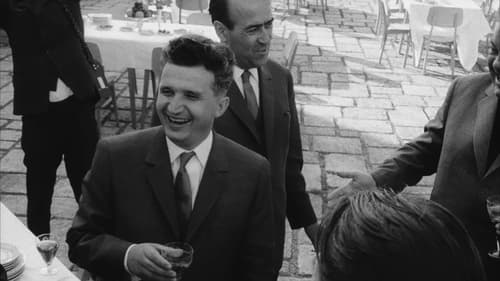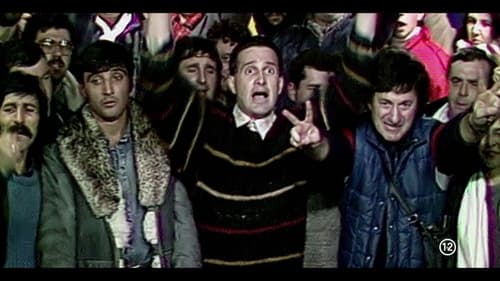Andrei Ujică
Birth : 1951-01-01, Timisoara, Romania

Self
Documentary on the Romanian rock band Phoenix.

Director
Andrei Ujică’s 2 Pasolini follows the Italian auteur and his theological advisor, Don Andrea Carraro, on a trip through 1960s Palestine to scout locations for his 1964 biblical masterpiece The Gospel According to Saint Matthew. Through candid archival footage and surprising juxtapositions, the film tracks both Pasolini’s journey and Christ’s—across the desert, to the shores of a raging sea, and beyond.

Thanks
In Bettina Büttner’s exquisitely lucid documentary Kinder (Kids), childhood dysfunction, loneliness, and pent-up emotion run wild at an all-boys group home in southern Germany. The children interned here include ten-year-olds Marvin and Tommy. Marvin, fiddling with a mini plastic Lego sword, explains matter-of-factly to the camera, “This is a knife. You use it to cut stomachs open.” Dennis, who is even younger, is seen in a hysteric fit, mimicking some pornographic scene. Boys will be boys, but innocence is disproportionately spare here. Choosing not to dwell on the harsh specifics, Büttner reveals the disconcerting manner in which traumatic episodes can manifest themselves in the mundane — a game of Lego, Hide and Seek, or Truth or Dare. Filmed in lapidary black-and-white, Büttner’s fascinating film sheds light on childhood from the boys’ characteristically disadvantaged perspective — one not yet fully cognizant — leaving much ethically to ponder over.

Writer
The three-hour-long documentary covers 25 years in the life of Nicolae Ceaușescu and was made using 1,000 hours of original footage from the National Archives of Romania.

Director
The three-hour-long documentary covers 25 years in the life of Nicolae Ceaușescu and was made using 1,000 hours of original footage from the National Archives of Romania.

Director
In the immediate aftermath of the 11 September Paul Virilio suffered from a malaise found very seldom among philosophers, which was caused by an excessive degree of confirmation on the part of reality. He broke off work on his book "L'accident Intégral" to put together an exhibition that was designed to illustrate the concept of the global accident in all its topicality. The outcome was the much-vaunted Ce qui arrive, which was housed in the Fondation Cartier pour l'art contemporain in Paris from 29 November 2002 to 30 March 2003. The cinematic installation, Unknown Quantity, which was a key part of the exhibition, features the staging of a discussion between Paul Virilio and Svetlana Alexiyevich, the author of the book "Chernobyl. Chronicle of the Future", the essential witness's statement on the conversion of history in catastrophe.

Editor
In May 1991 Soviet cosmonauts Anatoly Artsebarksy and Sergey Krikalev visit space station Mir in space mission Ozon. Artsebarski, the commander, returns to Earth according to plan 5 months later. Krikalev has to stay in space for ten months because of the chaotic political situation in his home country. He left the USSR to return to Russia. The 1991 coup ends an important era.

Writer
In May 1991 Soviet cosmonauts Anatoly Artsebarksy and Sergey Krikalev visit space station Mir in space mission Ozon. Artsebarski, the commander, returns to Earth according to plan 5 months later. Krikalev has to stay in space for ten months because of the chaotic political situation in his home country. He left the USSR to return to Russia. The 1991 coup ends an important era.

Director
In May 1991 Soviet cosmonauts Anatoly Artsebarksy and Sergey Krikalev visit space station Mir in space mission Ozon. Artsebarski, the commander, returns to Earth according to plan 5 months later. Krikalev has to stay in space for ten months because of the chaotic political situation in his home country. He left the USSR to return to Russia. The 1991 coup ends an important era.

Writer
Videograms of a Revolution is a 1992 documentary film compiled by Harun Farocki and Andrei Ujică from over 125 hours of amateur footage, news footage, and excerpts from the Bucharest TV studio overtaken by demonstrators as part of the December 1989 Romanian Revolution.

Director
Videograms of a Revolution is a 1992 documentary film compiled by Harun Farocki and Andrei Ujică from over 125 hours of amateur footage, news footage, and excerpts from the Bucharest TV studio overtaken by demonstrators as part of the December 1989 Romanian Revolution.








